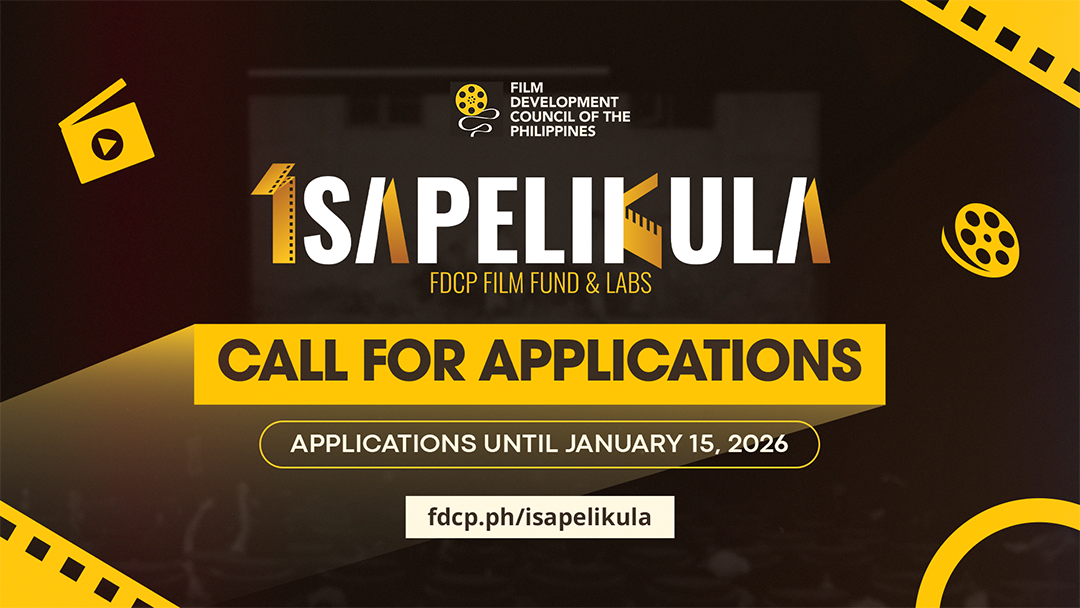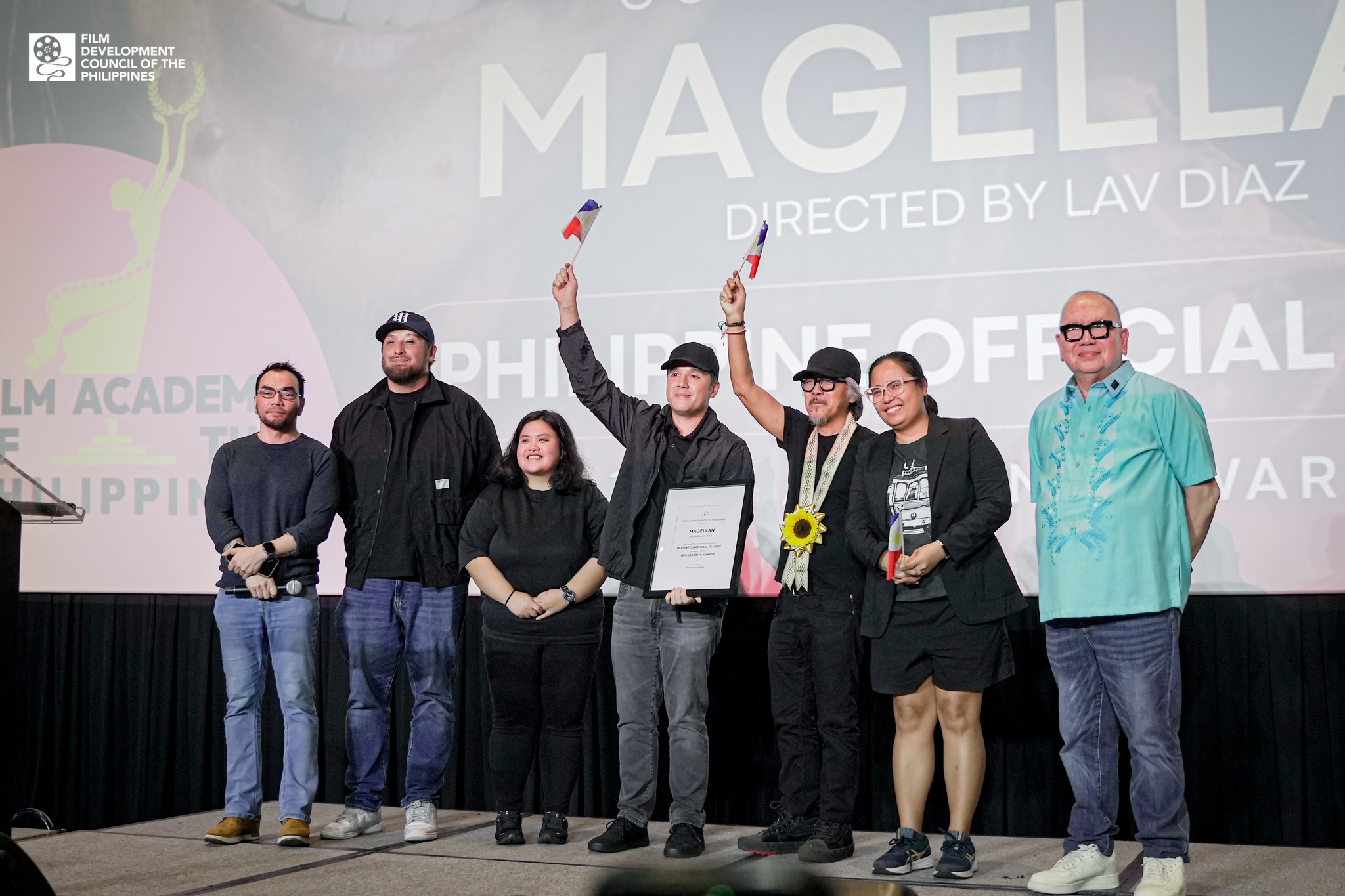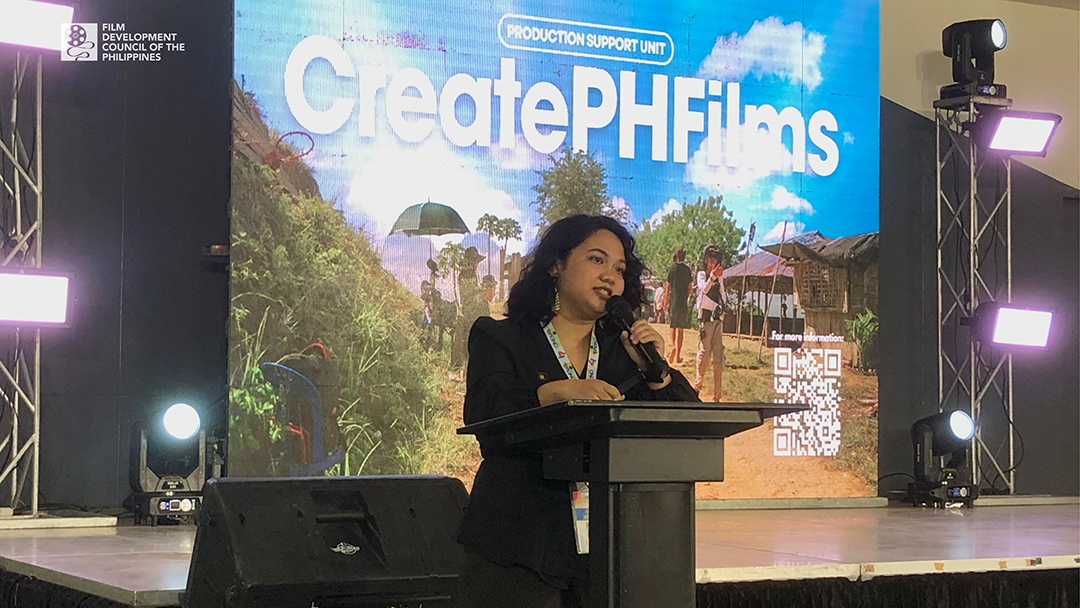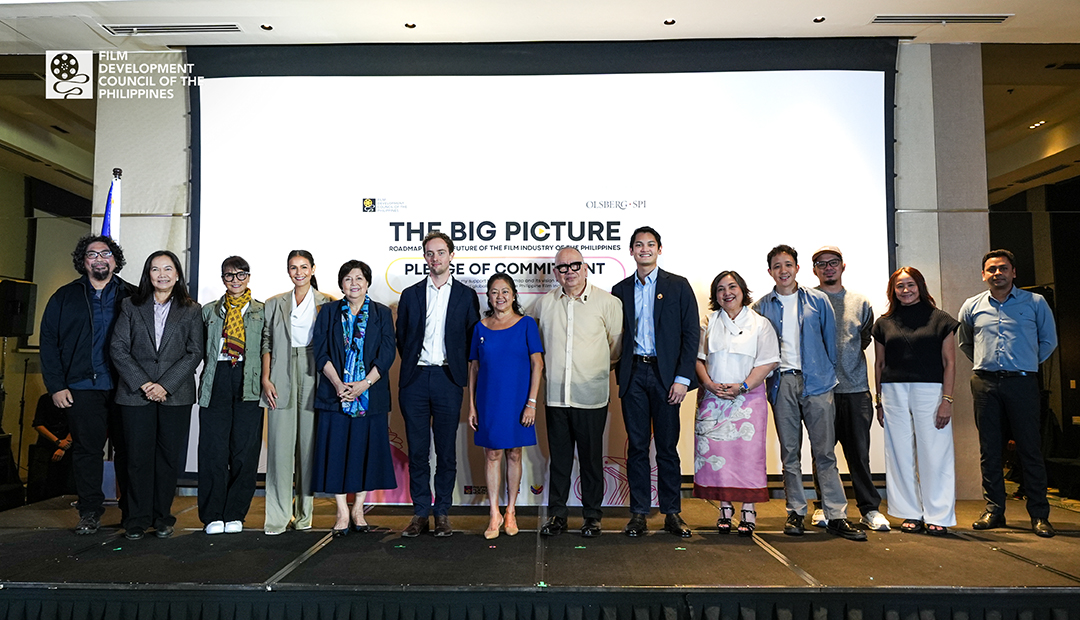FDCP’s refocused programs for PH film and audiovisual sectors to cope with the Covid-19 crisis
Like with the rest of the government agencies in the country and around the world, the Film Development Council of the Philippines’ planned projects, events, and programs this year have been severely affected and this has brought us a new perspective on how to provide services and engage stakeholders.
Now, we continue to render public service and work for the betterment of the film and audiovisual industry.
The agency took the following necessary steps to adapt to what would surely be our new normal for the FDCP and its programs:
- Reassess. Understand what works and what doesn’t.
- Refocus. For those that worked, refocus them to address Covid-19 interventions.
- Reinvent. Create new programs out of old ones to serve as support systems for the health and safety of the industry.
- Reformat. Adapt programs to new platforms.
- Retool. Provide new skillset to displaced workers.
With these principles in mind, the FDCP has been working aggressively to put everything in place so we may best support the industry and our stakeholders.
We are almost done with processing the approvals and disbursements for the Disaster/Emergency Assistance and Relief (DEAR) Program that provides financial support to displaced freelance workers in the film and audiovisual industry.
New initiatives have also been launched, with more to come, as we refocus the programs that were finalized at the beginning of the year. Some projects were modified and some teams had to be restructured.
Our critically impacted divisions are those that are in charge of on-ground events such as seminars, film development labs, awarding ceremonies, and film festivals.
Despite the setback because of the pandemic, we proceeded with most of our programs and created new ones like production support and Covid-19 intervention projects under the Safe Filming Program which are especially crucial at this time.
1. Safe Filming Program
The Safe Filming Program by the FDCP is in partnership with the Department of Health (DoH) and Department of Labor and Employment (DoLE) which will take the strategies and guidelines of the FDCP-DOH-DOLE Joint Administrative Order (JAO) No. 2020-001, S. 2020 and create a global resource website that outlines the principles of safe production and provides information about systems, resources, forms, and all related documents and issuances to ensure working safely in the Philippines for both local and international film productions.
It shall also be a platform for an active collaboration with international film commissions and stakeholders to share best practices and updates especially with the constant assessment and management of risks of infection transmission.
Webinars on safety and health protocols and training sessions on Covid-19 matters will also be conducted. There will be the development of a tracer app and a disinfection package for productions will be created to help producers and employers in enforcing the Covid-19 protocols of the government.
2. National Registry
The National Registry is a veritable database of all active film and television workers, audiovisual companies, audiovisual organizations, and film festivals all over the Philippines. This provides FDCP and the government information to open avenues for cultural and business opportunities and activities that promote the growth and development of the local audiovisual industry and its workers.
In order to expand its database members and facilitate better communication with them amidst the pandemic, the FDCP is developing a website plus a mobile app for the National Registry.
3. Cine Lokal Online
Our Cine Lokal program will soon become an online platform that offers a combination of free streaming and videos on demand. Cine Lokal Online will also host regional film festivals that were cancelled or postponed because of community quarantine restrictions.
4. Philippine Cinema Fund
The Philippine Cinema Fund (PCF) aims to create a domestic funding mechanism to support film production and artistic creation in the Filipino film industry. PCF is allocating funds for project development, production, post-production, and distribution. PCF will be launched by July 2020 as part of the ongoing celebration of One Hundred Years of Philippine Cinema.
5. Pugad Sining — FDCP’s Creative Hub
To provide long-term support for film and audiovisual professionals from various arts communities, the FDCP will launch Pugad Sining, the Film and Audiovisual Industry’s Creative Hub. Each Pugad Sining is unique to their artistic nature, the arts community they serve, and the people that support their work.
6. UNIPHILIPPINES
This new initiative will cover international coordination for the promotion of Philippine Cinema in various overseas markets through the virtual platform.
The country has already confirmed its attendance in the following online film and co-production markets: Marché du Film or Cannes Film Market of the Cannes International Film Festival in France; Cannes Docs, Annecy International Animation Film Festival in France; Locarno International Film Festival in Switzerland; and Udine Far East Film Festival in Italy.
Other International Relations refocused programs, which will be done through online platforms and virtual film festivals, are Spotlight: Philippines, participation in film markets, Film Cultural Exchange Program through foreign embassies, and Philippine Embassies Assistance Program.
7. FilmPhilippines
Under the FilmPhilippines Office, the One-Stop Shop Assistance Program (OSSAP) will have a local version, the Film Location Incentive Program (FLIP), which will give focus to post-production projects, and the International Co-Production Fund (ICOF) will look to support projects slated for next year.
8. FDCP Film School Online
The FDCP Film School will have an online version and will be held virtually. Keeping with its goal to build regional film communities all over the Philippines, The FDCP Film School Online will still be done through partnerships with various local government units. Sorsogon (happening in August), Tagum, Davao, and Iloilo are already lined up in the coming months. There are also targeted partnerships plus a plan to integrate the FDCP Film School Online in blended learning arrangements with the Commission on Higher Education (CHED).
Meanwhile, the Festival Development Assistance program will be activated for online film festivals.
9. #NoodTayongSine Campaign
Through this program, we will harness online platforms while reminding the public about the significance of movie theater viewing.
We just launched the #NoodTayoNgSine information campaign that highlights the importance of the cinema viewing experience. It encourages the public to watch films in cinemas when the government allows mass gatherings again, provided that there is strict compliance to safety protocols.
The #NoodTayoNgSine microsite has a sign-up sheet for those who will watch films in the cinemas again once permitted. It also has a real-time counter for those who signed up.
10. Pista ng Pelikulang Pilipino (PPP)
The fourth PPP will be an FDCP-led omnibus project that will be held through existing platforms to signify unity and cooperation in the film industry.
The joint PPP will take place from September 11 to 17 featuring curation of films from the FDCP’s CineMarya Women’s Film Festival, Cinemalaya Philippine Independent Film Festival, Sinag Maynila Film Festival, Cinema One Originals Film Festival, CineFilipino Film Festival, and ToFarm Film Festival.
11. Film Industry Conference (FIC)
The FIC Online will tackle topics that are relevant to the Covid-19 situation: upskilling, retooling, reskilling, isolation cinema, stories that would work during the pandemic, working remotely, dealing with distributors, business-to-business matching with international sales agents, and meeting the quality control requirements of Netflix and other streaming platforms.
12. Film Restoration
The Philippine Film Archive (PFA) aims to produce online content on top of its ongoing digitization program, intellectual property rights protection initiative, and film repairs and restorations. Since the implementation of the ECQ, PFA has an onsite skeletal team that safeguards our film archives. As part of its commitment to preserve cinematic heritage, restoration of the films “Dalagang Ilocana” (1954) and “Maalaala Mo Kaya” (1954) is currently in the works.
There is still a lot of uncertainty as we deal with the Covid-19 pandemic. But one thing’s for sure, the FDCP’s commitment to the film and audiovisual industry will not waver.
Aside from engaging stakeholders and the government to create policies and programs that support affected industry members, the national film agency stands by its vision of having a thriving industry that contributes to the country’s cultural and economic development.
We admit that there is room for improvement, and we will continue to strive hard to provide better service for our stakeholders. As we carry on with the pandemic still at hand, I assure that the FDCP will guide Philippine Cinema and the rest of the audiovisual sectors every step of the way as we aim for an industry that is more vibrant, professionalized, prosperous, and sustainable.
Source: https://www.manilatimes.net/2020/06/21/weekly/the-sunday-times/arts-awak...





